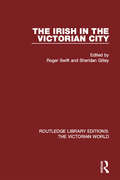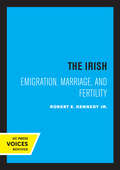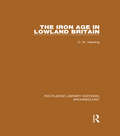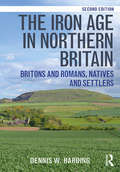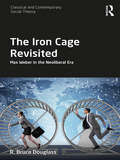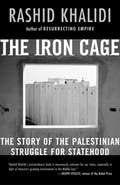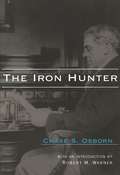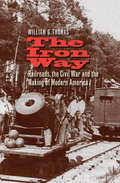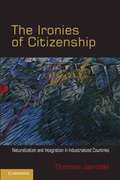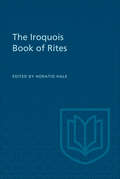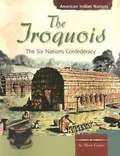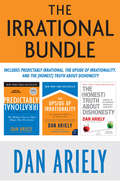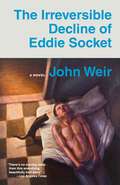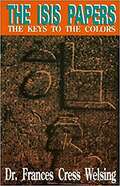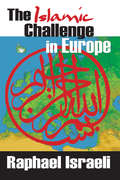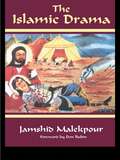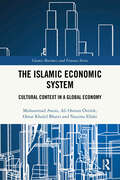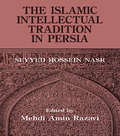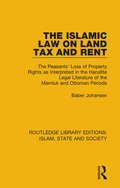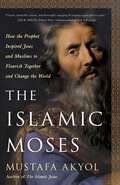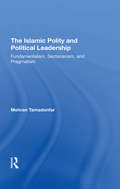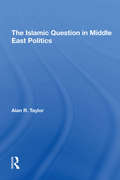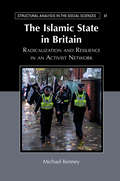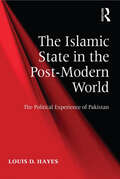- Table View
- List View
The Irish in the Victorian City (Routledge Library Editions: The Victorian World #47)
by Roger Swift; Sheridan GilleyFirst published in 1985, this book explores the social history of the Irish in Britain across a variety of cities, including Bristol, York, Glasgow, Edinburgh and Stockport. With contributions from foremost scholars in the field, it provides a thorough critical study of Irish immigration, in its social, political, cultural and religious dimensions. This book will be of interested to students of Victorian history, Irish history and the history of minorities.
The Irish: Emigration, Marriage, and Fertility
by Robert E. Kennedy Jr.This title is part of UC Press's Voices Revived program, which commemorates University of California Press’s mission to seek out and cultivate the brightest minds and give them voice, reach, and impact. Drawing on a backlist dating to 1893, Voices Revived makes high-quality, peer-reviewed scholarship accessible once again using print-on-demand technology. This title was originally published in 1973.
The Iron Age in Lowland Britain (Routledge Library Editions: Archaeology)
by D.W. HardingThis book was written at a time when the older conventional diffusionist view of prehistory, largely associated with the work of V. Gordon Childe, was under rigorous scrutiny from British prehistorians, who still nevertheless regarded the ‘Arras’ culture of eastern Yorkshire and the ‘Belgic’ cemeteries of south-eastern Britain as the product of immigrants from continental Europe. Sympathetic to the idea of population mobility as one mechanism for cultural innovation, as widely recognized historically, it nevertheless attempted a critical re-appraisal of the southern British Iron Age in its continental context. Subsequent fashion in later prehistoric studies has favoured economic, social and cognitive approaches, and the cultural-historical framework has largely been superseded. Routine use of radiocarbon dating and other science-based applications, and new field data resulting from developer-led archaeology have revolutionized understanding of the British Iron Age, and once again raised issues of its relationship to continental Europe.
The Iron Age in Northern Britain: Britons and Romans, Natives and Settlers
by Dennis W. HardingThe Iron Age in Northern Britain examines the archaeological evidence for earlier Iron Age communities from the southern Pennines to the Northern and Western Isles and the impact of Roman expansion on local populations, through to the emergence of historically-recorded communities in the post-Roman period. The text has been comprehensively revised and expanded to include new discoveries and to take account of advanced techniques, with many new and updated illustrations. The volume presents a comprehensive picture of the ‘long Iron Age’, allowing readers to appreciate how perceptions of Iron Age societies have changed significantly in recent years. New material in this second edition also addresses the key issues of social reconstruction, gender, and identity, as well as assessing the impact of developer-funded archaeology on the discipline. Drawing on recent excavation and research and interpreting evidence from key studies across Scotland and northern England, The Iron Age in Northern Britain continues to be an accessible and authoritative study of later prehistory in the region.
The Iron Cage Revisited: Max Weber in the Neoliberal Era (Classical and Contemporary Social Theory)
by R. Bruce DouglassAt the start of the twentieth century, when Germany, among other nations, was undergoing industrialization, Max Weber famously characterized modern life in words that have often been translated as "iron cage." During the industrial era, that image caught on and was often used by scholars to express concerns about the extent to which the actual character of modern life contradicted its emancipatory promise. But we are living in a different time now, when the conditions under which we live seem to be quite different from the ones that pertained in Weber's day. It is a time when, in some respects at least, life seems to be freer and more conducive to experimentation, which has led some people to conclude that our societies have escaped from Weber's "cage." But is that really true? This book challenges that notion, considering the consequences for our way of life of the triumph of neoliberalism as a political force.
The Iron Cage: The Story of the Palestinian Struggle for Statehood
by Rashid KhalidiKhalidi (Arab studies, Columbia U.) explains why the Palestinians failed to achieve independence prior to 1948, the date of the establishment of Israel. Rather than "compare the incomparable"--the Palestinians and the Zionist movement--he provides thematically comparisons of the Palestinians to other Arab societies at analogous stages of development. His major themes include the failure of the Palestinians to successfully challenge the legal structure of the mandatory regime, which was consciously designed to prevent Palestinian self-government; the role of British-created religious structures in co-opting Palestinian elites; and the structural failures of the revolt of 1936-39.
The Iron Hunter: Iron Hunter (Great Lakes Books Series)
by Robert M. Warner Chase S. OsbornA reprint of the autobiography of Michigan's controversial govern from the Upper Peninsula.
The Iron Way: Railroads, the Civil War, and the Making of Modern America
by William G. ThomasHow railroads both united and divided us: &“Integrates military and social history…a must-read for students, scholars and enthusiasts alike.&”—Civil War Monitor Beginning with Frederick Douglass&’s escape from slavery in 1838 on the railroad, and ending with the driving of the golden spike to link the transcontinental railroad in 1869, this book charts a critical period of American expansion and national formation, one largely dominated by the dynamic growth of railroads and telegraphs. William G. Thomas brings new evidence to bear on railroads, the Confederate South, slavery, and the Civil War era, based on groundbreaking research in digitized sources never available before. The Iron Way revises our ideas about the emergence of modern America and the role of the railroads in shaping the sectional conflict. Both the North and the South invested in railroads to serve their larger purposes, Thomas contends. Though railroads are often cited as a major factor in the Union&’s victory, he shows that they were also essential to the formation of &“the South&” as a unified region. He discusses the many—and sometimes unexpected—effects of railroad expansion, and proposes that America&’s great railroads became an important symbolic touchstone for the nation&’s vision of itself. &“In this provocative and deeply researched book, William G. Thomas follows the railroad into virtually every aspect of Civil War history, showing how it influenced everything from slavery&’s antebellum expansion to emancipation and segregation—from guerrilla warfare to grand strategy. At every step, Thomas challenges old assumptions and finds new connections on this much-traveled historical landscape."—T.J. Stiles, Pulitzer Prize-winning author of The First Tycoon: The Epic Life of Cornelius Vanderbilt
The Ironies of Citizenship
by Thomas JanoskiExplanations of naturalization and jus soli citizenship have relied on cultural, convergence, racialization, or capture theories, and they tend to be strongly affected by the literature on immigration. This study of naturalization breaks with the usual immigration theories and proposes an approach over centuries and decades toward explaining naturalization rates. First, it provides consistent evidence to support the long-term existence of colonizer, settler, non-colonizer, and Nordic nationality regime types that frame naturalization over centuries. Second it shows how left and green parties, along with an index of nationality laws, explain the lion's share of variation in naturalization rates. The text makes these theoretical claims believable by using the most extensive data set to date on naturalization rates that include jus soli births. It analyzes this data with a combination of carefully designed case studies comparing two to four countries within and between regime types.
The Iroquois Book of Rites (Scholarly Reprint Series Edition)
by William Fenton Horatio HaleThe Iroquois Book of Rites, the most noteworthy of Hale's studies of the Iroquois, was translated and edited by him from two Indian manuscripts found at Grand River, with the help of informants and interpreters. The various parts of the Book of Rites throw valuable light on the political and social life, as well as the character and capacity, of the Iroquois. A long introduction by Hale contains essays on the League, on the Book of Rites, on the Condoling Council, and on the historical traditions, character, policy and language of the Iroquois. Hale's important book has long been out of print and in demand. It is reprinted here with a valuable introduction on Hale and the significance of his work by William N. Fenton of the New York State Museum and Science Service, University of the State of New York.
The Iroquois: The Six Nations Confederacy
by Jane Duden Mary EnglarProvides an overview of the past and present lives of the Iroquois Native Americans of New York and Ontario, tracing their customs, family life, history, culture, and government.
The Irrational Bundle
by Dan ArielyDan Ariely's three New York Times bestselling books on his groundbreaking behavioral economics research, Predictably Irrational, The Upside of Irrationality, and The (Honest) Truth About Dishonesty, are now available for the first time in a single volume,
The Irrational Bundle
by Dr Dan ArielyDan Ariely's three New York Times bestselling books on his groundbreaking behavioral economics research, Predictably Irrational, The Upside of Irrationality, and The (Honest) Truth About Dishonesty, are now available for the first time in a single volume.
The Irreversible Decline of Eddie Socket
by John WeirBefore the onset of his irreversible decline, Eddie Socket always suspected he was on the verge of something. Now that “something” has arrived in the form of Merrit Mather, an attractive older gentleman of impeccable taste in everything from sweaters to his numerous sexual conquests. That Merrit happens to be the lover of Eddie’s agitated boss, Saul, hardly fazes the smitten Eddie; that the elusive Merrit loses interest in Eddie with dizzying speed hardly dims his ardor. While Eddie continues his futile chase, he finds solace in his roommate, Polly, involved in her own implausible affair with a self-involved banker. Both Eddie and Polly eventually conclude that solitude is their best option. But even that is not possible as Eddie finds his life taking an unexpected turn—a turn that that serves as the catalyst for Eddie, love-ravaged Polly, and the indomitable Saul to reclaim their lives.First published in 1989 and winner of the 1990 Lambda Literary Award for Best Gay Debut Novel, The Irreversible Decline of Eddie Socket is one of the first novels to respond to the global AIDS crisis. A comedy of absurdist horror, it weaponizes the comic as a way of intensifying the tragic aspects of AIDS, which were especially acute in the early 1980s, and the scars of which are still visible today.
The Isis Papers: The Keys to the Colors
by Frances C. WelsingThis collection of essays written by Frances Cress Welsing over an 18 year period following the presentation and publication of "The Cress Theory of Color-Confrontation and Racism (White Supremacy)" which was a theoretical statement, a psychogenetic theory and world outlook on the origin and meaning of the global white supremacy system. This theory summarizes and clarifies the experience of non-white peoples on a planet dominated by people who classify themselves as 'white' and who are a minority of the world's people.
The Islamic Challenge in Europe
by Raphael IsraeliSince the World Trade Center attacks in New York on September 11, 2001, Europe has been plagued by Islamist attacks that have taken many lives and disrupted many services. Considerable attention has been paid to radical Islamist attacks on the United Kingdom, France, and Germany, but far less focus has been on the Islamist extremist impact on the rest of Europe. This book warns all Europeans, but Middle Easterners as well, that they are not immune to terror. That terror is confined to Jews and Israel is a myth. Muslim extremist attacks have taken place against other Muslim nations--as well as European nations in which Jewish influence or Israeli support is negligible. The waves of Muslim recrimination against the West have given rise to internal struggles within the Arab world played out in terrorist acts. Muslim brotherhoods have defined a global war against other religions, nations, and cultures that stray from the principles of fundamentalism--a cultural and military jihad. Just where religious identity supervenes national identity has become a critical turning point. Israeli's book shows that the line between moderates and extremists within the Islamic fold is vague, ambiguous, and in certain situations non-existent. It draws attention to polls and public sentiments of the Islamic faithful, and emphasizes the Islamic attack on modernization and its cultural sources. This timely volume is addressed to those in the West who are not accustomed to thinking in apocalyptic terms. Israeli provides painstaking details of European responses to Islamist challenges, particularly those who prefer pragmatic compliance rather than response. He demonstrates that Islamic extremism continues to grow in the heartland of the European world. This is neither an optimistic nor pessimistic book; its disturbing message may be a wake-up call to some. It is a necessary read for those who want to go beyond news, opting for a more intellectual and comprehensive diet.
The Islamic Drama
by Jamshid MalekpourDescribed by the distinguished theatre director Peter Brook as 'a very powerful form of theatre', the Ta'ziyeh is the Islamic drama of Iran. This work examines the evolution of the Ta'ziyeh, which involved elements drawn from Zoroastrianaism, Mithraism, mythology, folklore and traditional forms of Iranian entertainment. In its final form, most of its elements - plot, character, thought, spectacle and song - derive from the Shi'a branch of Islam. Its main plot concerns the suffering and death of Imam Hussein, grandson of the Prophet of Islam. A special issue of the journal Israel Affairs.
The Islamic Economic System: Cultural Context in a Global Economy (Islamic Business and Finance Series)
by Muhammad Awais Ali Osman Öztürk Omar Khalid Bhatti Nazima EllahiIslamic Economics refers to financial aspects or monetary activities and processes, which adhere to Islamic standards and teachings. The Islamic Economic System relates to the hypothetical development of an economy whose individuals follow the Islamic faith. This book presents an interesting and timely narrative of the concepts of Islamic economics in the context of Islamic culture. Its purpose is to guide individuals and organizations towards a Shariah-based Islamic Economic System.It begins by introducing the Islamic Economic System; its historical origins are explained in the framework of the verses of the Holy Quran, and in light of the Shariah scholars and the philosophical thinkers of the mid-20th century. It discusses concepts such as the evolution of Islamic Fintech and Artificial Intelligence (AI); the relationship between Islamic corporate governance and Islamic Economics; the distribution of wealth in Islam; Islamic Social Finance; Islamic Economic practices in the banking industry, behavioural norms and moral foundations; and Islamic Economics in Organisation of Islamic Cooperation (OIC) and non-OIC countries. The author emphasizes the principles that set Islamic economics apart from traditional systems, grounded in Shariah evidence and highlights the role of Islamic principles in promoting overall business success and ethical practices in the banking industry, offering comparative analysis between Islamic and conventional models, as well as economic systems. Drawing on a rich array of sources, including the Quran and interviews with renowned religious scholars, the book provides a well-rounded and thoroughly researched argument.This book will serve as a valuable resource for academics, scholars, researchers, and organizations seeking to navigate the complexities of an interest-free economic system guided by Islamic principles.
The Islamic Intellectual Tradition in Persia
by Seyyed Hossein Nasr Mehdi Amin AminrazaviThis volume gathers together the numerous essays by the Iranian metaphysician and ontologist, Seyyed Hossein Nasr, on Islamic philosophers and the intricate relationship between Persian culture and its philosophical schools. Brought together into a single volume for the first time, these essays span four decades of Nasr's prolific and learned scholarship on the development of Islamic philosophy, as well as the general history of Islam, and expound his belief that philosophy is not merely a rational but a sacred activity.
The Islamic Law on Land Tax and Rent: The Peasants' Loss of Property Rights as Interpreted in the Hanafite Legal Literature of the Mamluk and Ottoman Periods (Routledge Library Editions: Islam, State and Society)
by Baber JohansenThis book, first published in 1988, argues that a close inspection of the development of Hanafite law in the Mamluk and Ottoman periods reveals changes in legal doctrine which were not restricted to civil transactions but also concerned the public law. It focuses in particular on the interrelated areas of property, rent and taxation of arable lands, arguing that changes in the relationship between tax and rent led to a redefinition of the concept of landed property, a concept at the very heart of the Islamic legal system. This title will be of particular interest to students of Islamic history.
The Islamic Moses: How the Prophet Inspired Jews and Muslims to Flourish Together and Change the World
by Mustafa AkyolA theological and historical exploration of the connection between Islam and Judaism through the single most-mentioned character in the Quran: Moses.There is one human mentioned in the Quran more than any other: Moses. Why is it that the Jewish prophet dominates the Islamic scripture? Because he is the role model for Muhammad, Islam’s own prophet. Because Islam, just like Christianity, is deeply intertwined with Judaism — although surprisingly little attention has been given to this fascinating connection between the two religions.Author and journalist Mustafa Akyol takes readers on a theological and historical walk through that much-neglected side of the Abrahamic triangle: the Judeo-Islamic tradition. Using Moses’ presence in the Quran as a jumping-off point, Akyol explores the first historical encounter between Muslims and Jews, the creative symbiosis and mutual enrichment that occurred between the two belief systems in medieval times, and the modern emergence, development, and perception of the two religions.At a time of bitter conflict in the Middle East, The Islamic Moses dives into the older, deeper, and often unexpectedly brighter story of Jews and Muslims. Readers of any background will be surprised by the common historical and theological ground that exists between the two religions, and will come away with a better understanding of both.
The Islamic Polity And Political Leadership: Fundamentalism, Sectarianism, And Pragmatism
by Mehran TamadonfarThis book is employed for the study of the Islamic polity and political leadership and examines the basic features of the Islamic polity. It provides a theoretical framework for the study of political authority in the Islamic world signifying individual leaders' characteristics.
The Islamic Question In Middle East Politics
by Alan R TaylorThis book provides an overview of the origins, development, and eventual encounters of secular nationalism and the various manifestations of the Islamic reform movement. The scope of the book is restricted to the Middle East (Turkey, Iran, and the Arab states).
The Islamic State in Britain: Radicalization and Resilience in an Activist Network (Structural Analysis in the Social Sciences)
by Michael KenneyDrawing on extensive field research with activists on the streets of London, Michael Kenney provides the first ethnographic study of a European network implicated in terrorist attacks and sending fighters to the Islamic State. For over twenty years, al-Muhajiroun (Arabic for 'the Emigrants') strived to create an Islamic state in Britain through high-risk activism. A number of Emigrants engaged in violence, while others joined the Islamic State in Iraq and Syria. Kenney explains why young Britons joined the Emigrants, how they radicalized and adapted their activism, and why many of them eventually left. Through an innovative mix of ethnography and network analysis, Kenney explains the structure and processes behind this outlawed network and explores its remarkable resilience. What emerges is a complex, nuanced portrait that demystifies the Emigrants while challenging conventional wisdom on radicalization and countering violent extremism.
The Islamic State in the Post-Modern World: The Political Experience of Pakistan
by Louis D. HayesThe Islamic State in the Post-Modern World is a study of the political development of Pakistan. This study consists of three parts. The first addresses the concept of the 'state' as it has evolved historically. The approach is comparative and involves a brief review of Islamic political theory. The second part of this section is the modern state, i.e., the Westphalian model. The territorial state is still the standard although it has been evolving in new directions for some time. The second section focuses on the creation of Pakistan as an experiment in bridging the gulf between the demands of the modern state and the philosophical-spiritual attraction of the Islamic model. In addition to constitutional issues, the discussion also includes political forms, i.e., the machinery of daily government and the appropriateness of democratic methods, elections, legislative process, and political parties, to achieve Islamic ends. The third part considers international issues from the beginning of the twenty-first century especially the conflicts in Iraq and Afghanistan. Despite its 'partnership' role with the US in the war on terror, Pakistan has been consistently marginalized. Pakistan’s problems are exacerbated by the conflict over Kashmir, a vestigial remnant of Pakistan’s continuous, and largely unsuccessful, efforts at self-identification.
